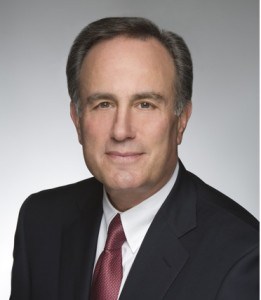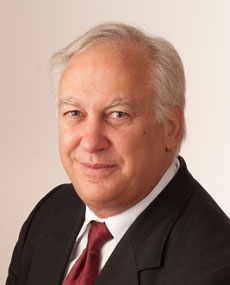 Fashionably late, Verizon Wireless intends to change its wireless smartphone data plans to end unlimited usage in the next four to six months, according to Verizon CEO Ivan Seidenberg.
Fashionably late, Verizon Wireless intends to change its wireless smartphone data plans to end unlimited usage in the next four to six months, according to Verizon CEO Ivan Seidenberg.
Seidenberg said Verizon Wireless’s new data plans, which he says will probably arrive in time for the holiday shopping season, will differ from AT&T’s but he refused to elaborate.
“We’re not sure we agree yet with how they valued the data,” he said at an investor conference Thursday.
The change has been widely anticipated in the wireless industry, as Verizon Wireless and AT&T, the nation’s largest and second largest carriers, charge nearly identical pricing for their wireless services. Both carriers formerly charged smartphone customers $29.99 per month for unlimited wireless usage. AT&T eliminated unlimited usage with two new plans unveiled in June with the introduction of the latest Apple iPhone. One charges customers $15 a month for up to 200Mb of usage, and another charges $25 for up to 2GB of usage per month. Customers exceeding the limits pay $15 for an additional 200Mb or $10 per gigabyte in additional fees.
Critics charge Verizon’s decision to slap usage limits and overlimit fees on customers is just another attempt to gouge wireless customers, made possible by the two providers’ market power.
Wall Street Journal reader Candace Kalish commented on the new limited usage attitude Verizon seeks to embrace:
What the carriers want is a tiered system with outrageous penalties for slight overages. The banks, car renters, airlines, and credit card issuers do very well with this. It is the most profitable business model since it requires careful underuse or disproportionate costs on the part of their customers. This is why they require people to guess their usage and impose punitive marginal costs on single byte transfers.
[…]I think the carriers’ actions indicate a much greater concern with short term profits rather than long term innovation and even great profitability.
[…]Since carriers impose rates on a take it or leave it basis, I don’t see rates improving much in the near future. I’ll stick with my ancient $30 a month plan and a cheap flip phone with an iPod Touch. When competition kicks in, possibly in the next 10 to 20 years, and they offer more for my money, I’ll consider a smarter phone. Right now the market is still what they used to call a natural monopoly, and the pricing structure proves it.
Seidenberg made it clear the new Internet Overcharging schemes will arrive in time for the company’s introduction of its fourth generation data network – Long-Term Evolution, more commonly known as LTE. Earlier, Verizon hinted to its investors it intends to market its LTE service at a premium price, anticipating customers will be willing to pay a higher price for faster service. This, despite the fact LTE will deliver Verizon dramatically increased capacity at a lower overall cost, in terms of bang for the spectrum buck.
Company officials are still considering whether LTE pricing will carry a per megabyte charge with little or no usage allowance or a more common usage allowance plan with overlimit fees. Either way, few expect wireless will offer an effective competing alternative to wired broadband service, unless one’s monthly usage is below 5GB. Above that amount, overlimit fees could quickly accumulate, leaving customers with wireless bill shock.
Dave Burstein, publisher of DSL Prime, commented back in January about wireless data pricing:
Charging at the this level, if the other wireless carriers go along, is a blatant attempt to protect their other services. [A government agency] filing points out the likely reason: “The Commission also must keep in mind that the two largest US wireless providers, Verizon and AT&T, also offer wireline services in major portions of the country, raising the question of whether these providers will market these services as replacements for wireline services.”
If his prices carry the day, the […] broadband plan will accomplish very little. The [plan] implicitly counts on wireless for competition, because new wired networks are highly unlikely and their plan doesn’t change that. Wireless voice in the U.S. is a weak cartel, data a relatively strong cartel. [Verizon’s] signals may inspire the other carriers to also drastically cut the basic data allowance. Or not.
If there’s a significant cut in the 5GB wireless allowance, then the broadband plan needs a huge redirection to measures that work [in] a telco-cable duopoly. That’s so tough I don’t know if Washington can do that.
Thanks to our regular reader Bones for sending word.


 Subscribe
Subscribe





